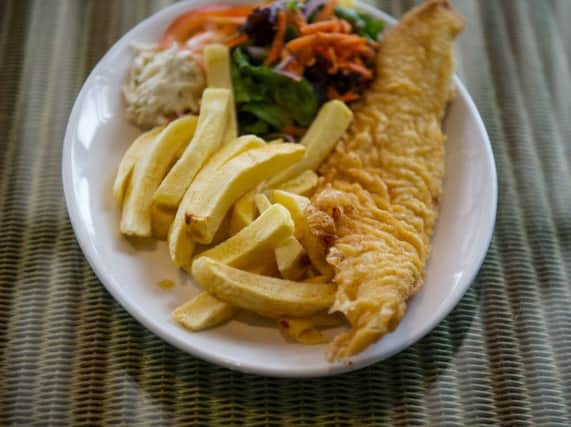Swap haddock for less popular fish in chippies, says guide


Eco-conscious diners should swap traditional favourites such as haddock and cod for less familiar options like megrim or dab, according to a new green fish list.
The Marine Conservation Society (MCS) has updated the “best choice” section of its Good Fish Guide, which rates seafood on its sustainability.
Advertisement
Hide AdAdvertisement
Hide AdIn it the charity suggests replacing the most popular fish species with others that are just as tasty but not so well known, in a move that will help both the environment and the country’s seafood sector.
UK consumers currently tend to favour cod, salmon, haddock, tuna and prawns, but the MCS has drawn up a post-Brexit top 10 which includes fish that are not household names.
Top of the rankings is seine-netted dab from the North Sea. Megrim caught in the northern North Sea or West of Scotland comes in at number five, followed by UK rope-grown mussels at six and brown crabs from Devon Inshore Potting Area at seven. Pollack caught by hand-line in the Celtic sea is in ninth place.
Bernadette Clarke, MCS Good Fish Guide programme manager, said: “Although they may not trip off the tongue like cod, mackerel and plaice, these could, and should, be the fish supper of the future.
“UK consumers tend to stick to their tried and tested top five – both in taste and familiarity, but not always sustainability.
“Cod, tuna, salmon, haddock and prawns from the right sources are all OK, but there’s so much more to explore and the new additions to the best choice list are a good place to start.”
Around three quarters of all fish caught and landed in the UK is exported. At the same time the country is a major importer of seafood.
Ms Clarke says buying home-caught species will benefit ecosystems and the economy.
Advertisement
Hide AdAdvertisement
Hide Ad“By choosing more sustainable sources and keeping it local it will help reduce wasting wild caught fish that are discarded dead because they have less value,” she said
“By choosing from a wider range we’ll be putting far less stress on individual fisheries.”